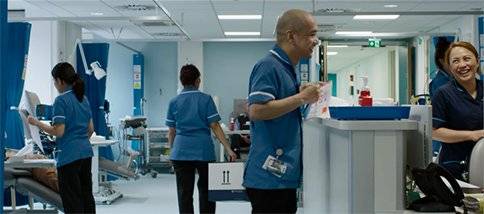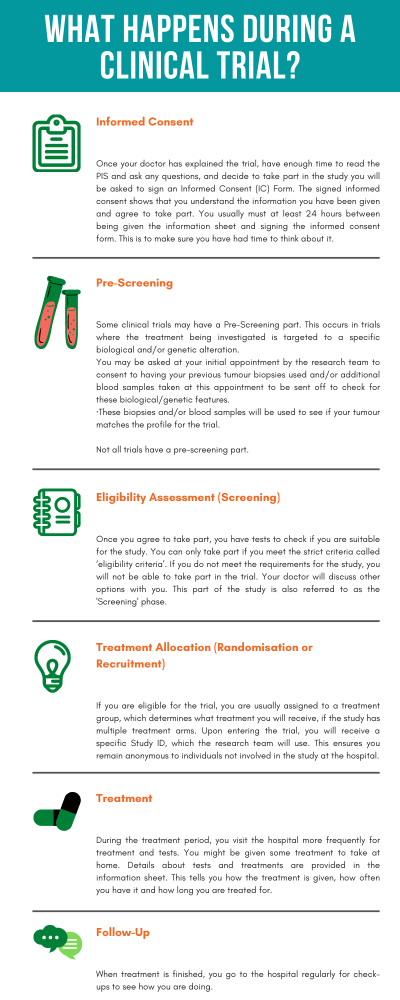Cancer Clinical Trials
Clinical trials are medical research studies involving people and aim to look for better treatments or better ways to prevent, screen or diagnose a disease such as cancer.
The Early Phase Cancer Trials Programme at UCL & UCLH focuses on Phase I and Phase II clinical trials (so called 'Early Phase').

Find Out About Open Clinical Trials
You can discover the Cancer Clinical Trials currently 'Open to Recruitment' at University College London Hospitals (UCLH) by visiting the 'Early Phase Cancer Trials Portfolio' page of the website.
The portfolio features the following information:
- Name of the study (both the study acronym and full title).
- Hyperlinked Local Project Reference (LRP) ID which links to the 'UCLH Find a Study' database.
- The name of the lead consultant running the trial, also called the Principal Investigator.
- Drug Class - The type of treatment(s) given in the clinical trial and the biological target of the treatment(s).
- Tumour Target and Patient Population - The specific type of tumour or tumour group(s) the treatment in the clinical trial is designed to target.
The Portfolio is linked to a public database of clinical trials which are run at UCLH, called the 'UCLH Find a Study' database. You can search and filter the database of trials by name, tumour/patient population and disease category and type of trial (either observational research or interventional).
How Can I Take Part in a Clinical Trial?
If your consultant believes you would benefit from participating in a particular clinical trial, they will refer you to the Principal Investigator running the trial at UCLH.
If you would like to take part in a clinical trial, you should speak to your GP or cancer consultant. If you take part in a clinical trial, or are considered for a clinical trial, you will first be given information about the study in the form of a Participant Information Sheet (PIS).
PARTICIPANT INFORMATION SHEET (PIS)
Information about a clinical trial is provided through a talk with a consultant and written information in the form of a Participant Information Sheet (PIS).
A PIS is a study specific document created by the scientific and medical leads who are running the clinical trial. The sheets provided information on the study, the treatment given as part of the study, how often you will need to attend clinic and what tests you will perform, including any extra scans or blood tests you will need to have as part of the study, any known side effects associated with the treatment and contact information for the individuals running the study at UCLH.
You will have the opportunity to read this and discuss with your family prior to agreeing to enter the study.
What Happens During a Clinical Trial?
Most cancer clinical trials follow a similar process:

Trial safety & monitoring:
Throughout the lifecycle of a clinical trial, they are monitored closely to make sure any problems are picked up and dealt with quickly. The protocol for the clinical trial can be changed if necessary, during the course of the trial. For example, the trial might be expanded to recruit more people, expanded to include different tumour types, or the closing date might be changed.
A trial may be stopped early if there are concerns about safety or if it is not likely to come up with a meaningful result. This can happen if the organisers have difficulty recruiting enough people to take part. If it becomes obvious that one group is doing much better than the other groups, the trial might close early, and everyone might switch to the better treatment if possible.
Frequently Asked Questions (FAQs) & Additional Information:
What Different Types of Clinical Trials Are There?
 Close
Close

